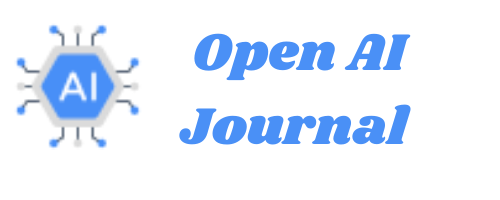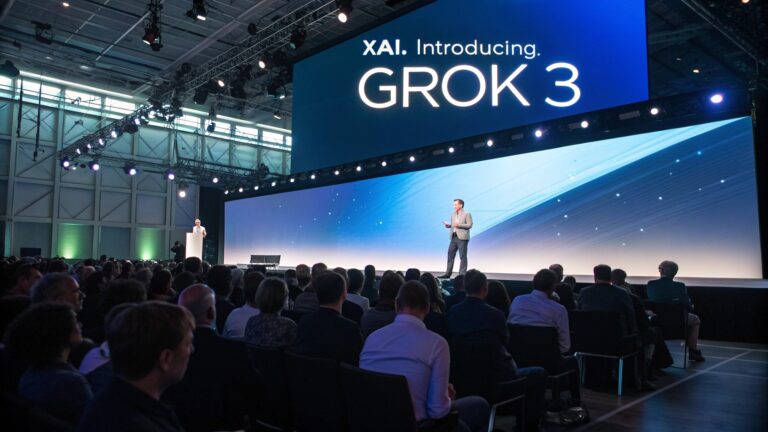Building AI CFO: Will Solopreneurs Even Need Accountants Anymore?

Table of Contents
Introduction: The Rise of the AI CFO and the Death of the Spreadsheet?
In the ever-evolving world of entrepreneurship, solopreneurs are increasingly seeking tools that offer efficiency, accuracy, and strategic insight. Traditional spreadsheets, once the cornerstone of financial management, are now being overshadowed by more sophisticated solutions. Enter the AI CFO—a digital financial advisor that not only automates mundane tasks but also provides strategic guidance.
The shift towards AI-driven financial management isn’t just a trend; it’s a response to the growing complexities of running a solo business. With the rise of digital platforms and the gig economy, solopreneurs are juggling multiple roles, making time a precious commodity.
Building an AI CFO is an important task for solopreneurs.AI CFOs step in to alleviate the burden, offering real-time insights, predictive analytics, and automated processes that were once the domain of human accountants.
Recent data underscores this transition. A report from SolveXia indicates that 95% of finance leaders are currently investing in AI, with 43% of companies anticipating AI to play a critical role in their business operations by 2025. This surge in AI adoption reflects a broader recognition of its potential to revolutionize financial management.
That’s why we’re going to cover in this article: How Solopreneurs Are Using AI to Automate Finances? Will AI Replace Accountants ? and How to Start Building AI CFO Today.
Section 1: What Is an AI CFO? The Basics Every Solopreneur Should Know
An AI CFO is more than just a digital tool; it’s a comprehensive financial management system powered by artificial intelligence. Unlike traditional accounting software that requires manual input and oversight, AI CFOs leverage machine learning algorithms to process data, identify patterns, and provide actionable insights.
Key functionalities of an AI CFO include:
- Automated Bookkeeping: Transactions are categorized and recorded without manual intervention, reducing errors and saving time.
- Real-Time Financial Reporting: Instant access to up-to-date financial statements and performance metrics.
- Predictive Analytics: Forecasting future cash flows, expenses, and revenue based on historical data and market trends.
- Compliance Monitoring: Ensuring adherence to tax regulations and financial reporting standards.
For solopreneurs, the appeal lies in the AI CFO’s ability to provide enterprise-level financial management without the associated costs. Tools like QuickBooks AI and Pilot offer tailored solutions that integrate seamlessly into solo business operations, providing the support once reserved for larger enterprises.
Section 2: How Solopreneurs Are Using AI to Automate Finances

The integration of AI into financial management has transformed how solopreneurs operate. By automating routine tasks, AI allows entrepreneurs to focus on strategic growth and innovation.
Expense Management: AI tools automatically categorize expenses, flag anomalies, and provide insights into spending patterns. This proactive approach helps in budgeting and identifying cost-saving opportunities.
Invoicing and Payments: Automated invoicing systems ensure timely billing, track payments, and send reminders, improving cash flow and reducing administrative burdens.
Tax Preparation: AI-driven platforms compile necessary documents, calculate liabilities, and even file taxes, minimizing the risk of errors and ensuring compliance.
Financial Forecasting: By analyzing historical data and market trends, AI provides forecasts that aid in strategic planning and investment decisions.
A study by Gartner revealed that 58% of finance teams are utilizing AI, marking a significant increase from previous years. This trend indicates a growing trust in AI’s capabilities to manage complex financial tasks.
Section 3: The Smart Side of AI CFOs — Benefits You Can’t Ignore
The adoption of AI CFOs offers numerous advantages that extend beyond mere automation.
Enhanced Accuracy: AI minimizes human errors in data entry and calculations, leading to more reliable financial records.
Time Efficiency: Automating routine tasks frees up valuable time, allowing solopreneurs to concentrate on core business activities.
Cost Savings: By reducing the need for external accounting services, AI CFOs offer a cost-effective solution for comprehensive financial management.
Strategic Insights: AI analyzes vast amounts of data to provide insights that inform decision-making, from investment opportunities to market expansion strategies.
Scalability: As the business grows, AI CFOs can adapt to increased complexity without the need for significant system overhauls.
These benefits collectively empower solopreneurs to operate with the agility and insight of larger organizations, leveling the playing field in competitive markets.
Statistical Overview
To illustrate the impact and adoption of AI in financial management, consider the following data:
| Metric | Statistic | Source |
|---|---|---|
| Finance leaders investing in AI | 95% | SolveXia |
| Companies anticipating critical AI role | 43% | SolveXia |
| Finance teams utilizing AI | 58% | Gartner |
| SMBs adopting AI in some capacity | 77% | Service Direct |
| CFOs leveraging generative AI tools | 20% | SolveXia |
These figures underscore the growing reliance on AI for financial management across various business sizes and sectors.
In embracing AI CFOs, solopreneurs are not just adopting new tools; they are redefining how solo businesses operate, compete, and thrive in the modern economy. The transition from traditional spreadsheets to intelligent financial systems marks a significant evolution in entrepreneurship, one that promises greater efficiency, insight, and success.
Section 4: The Accountant’s Counterargument — What AI Still Can’t Do
While AI CFOs have revolutionized financial management for solopreneurs, it’s essential to recognize their limitations. Human accountants bring a depth of understanding, ethical judgment, and personalized advice that AI currently cannot replicate.
One significant limitation of AI is its reliance on data quality. As Jeff Seibert, CEO of Digits, notes, “Accounting is basically a big-data problem; it’s the process of reconstructing money that has already moved or soon will.” He emphasizes the challenges in data cleaning, stating, “We spend a lot of time cleaning data. Deduplication is a nightmare” . AI systems can struggle with inconsistent or incomplete data, leading to potential inaccuracies in financial reporting.
Moreover, AI lacks the emotional intelligence and interpersonal skills necessary for nuanced financial decision-making. Building and maintaining client relationships are crucial in the accounting industry, and AI lacks the personal touch to navigate these relationships effectively .
Ethical considerations also come into play. AI algorithms, if not carefully managed, can perpetuate biases present in their training data. This can lead to unfair financial reporting or auditing processes, especially if certain groups or transactions are treated inequitably .
In summary, while AI CFOs offer efficiency and automation, they cannot replace the critical thinking, ethical judgment, and personalized service provided by human accountants.
Section 5: Keyword Spotlight – “Building AI CFO” in 2025 and Beyond
The term “Building AI CFO” has gained significant traction in recent years, reflecting the growing interest in integrating AI into financial management. As businesses seek to harness AI’s capabilities, understanding the nuances of building an AI CFO becomes paramount.
In 2025, the AI in accounting market is projected to reach USD 6.68 billion, growing at a 41.27% CAGR to USD 37.60 billion by 2030 . This rapid growth underscores the increasing demand for AI-driven financial solutions.
However, building an effective AI CFO requires more than just adopting new technology. It involves strategic planning, data management, and continuous learning. Businesses must ensure that their AI systems are trained on accurate and diverse data sets to avoid biases and inaccuracies.
Furthermore, integrating AI into financial operations necessitates a cultural shift within organizations. Employees must be trained to work alongside AI tools, understanding their capabilities and limitations. This collaboration between humans and AI can lead to more informed decision-making and improved financial outcomes.
In essence, building an AI CFO is not a one-time project but an ongoing process that combines technology, strategy, and human insight.
Section 6: Real-World Tools to Build Your Own AI CFO Today
For solopreneurs looking to build their own AI CFO, several tools are available that cater to various aspects of financial management:
- QuickBooks: Renowned for its user-friendly interface, QuickBooks streamlines invoicing, expense tracking, and tax preparation. With over 4.5 million users, it’s especially favored by solopreneurs who appreciate its robust features .
- Wave: Offering a free financial management solution, Wave provides essential tools for invoicing, accounting, and receipt scanning, making it ideal for those starting out or working within a tight budget .
- PULSE: An AI-powered financial intelligence tool, PULSE is crafted for CEOs, CFOs, and ambitious finance teams. It redefines forecasting, budgeting, and strategic planning through predictive AI and advanced business analytics .
- ClickUp AI: Serving as an executive assistant and project manager, ClickUp AI helps solopreneurs manage tasks efficiently, allowing them to focus on business growth .
- Affiniti: Targeting small and medium-sized businesses, Affiniti has introduced AI agents that manage all aspects of SMB financial operations, including banking and analytics .
These tools empower solopreneurs to automate financial tasks, gain insights, and make informed decisions without the need for a full-time accountant.
Section 7: Will AI Replace Accountants… or Just Make Them Smarter?
The rise of AI in accounting has sparked debates about the future role of human accountants. While AI can automate routine tasks, it cannot replace the strategic thinking, ethical judgment, and personal relationships that accountants provide.
A report from the Journal of Accountancy highlights that AI models are not infallible. If the data used to train the AI model is out of date, inaccurate, or incomplete, then the output may also be inaccurate or incomplete . This underscores the need for human oversight in financial decision-making.
Furthermore, the integration of AI into accounting practices can enhance the capabilities of accountants. By automating mundane tasks, accountants can focus on strategic planning, financial analysis, and advisory services. This shift allows them to provide more value to clients and adapt to the evolving financial landscape.
In conclusion, AI is not poised to replace accountants but to augment their roles, making them more efficient and strategic in their work.
Statistical Overview
To illustrate the impact and adoption of AI in financial management, consider the following data:
| Metric | Statistic | Source |
|---|---|---|
| Finance leaders investing in AI | 95% | SolveXia |
| Companies anticipating critical AI role | 43% | SolveXia |
| Finance teams utilizing AI | 58% | Gartner |
| SMBs adopting AI in some capacity | 77% | Service Direct |
| CFOs leveraging generative AI tools | 20% | SolveXia |
These figures underscore the growing reliance on AI for financial management across various business sizes and sectors.
In embracing AI CFOs, solopreneurs are not just adopting new tools; they are redefining how solo businesses operate, compete, and thrive in the modern economy. The transition from traditional spreadsheets to intelligent financial systems marks a significant evolution in entrepreneurship, one that promises greater efficiency, insight, and success.
Section 8: The Future of Financial Management for Solopreneurs
As we look ahead, the financial management landscape for solopreneurs is poised for transformative change. The integration of AI technologies is not just a trend but a fundamental shift in how solo entrepreneurs handle their finances.
AI-Driven Decision Making
AI tools are increasingly capable of analyzing vast amounts of financial data to provide actionable insights. This capability allows solopreneurs to make informed decisions quickly, without the need for extensive financial expertise. For instance, AI can identify spending patterns, forecast cash flows, and suggest budgeting strategies tailored to individual business models.
Real-Time Financial Monitoring
Traditional financial management often involves periodic reviews, which can lead to delayed responses to financial issues. AI enables real-time monitoring of financial health, alerting solopreneurs to potential problems before they escalate. This proactive approach ensures better financial stability and agility in decision-making.
Personalized Financial Strategies
AI systems can learn from a solopreneur’s financial behavior to offer personalized advice. Whether it’s suggesting optimal pricing strategies, identifying profitable customer segments, or recommending investment opportunities, AI provides customized guidance that evolves with the business.
Integration with Other Business Functions
Financial management doesn’t exist in isolation. AI facilitates the integration of financial data with other business areas such as marketing, sales, and operations. This holistic view enables solopreneurs to understand how financial decisions impact overall business performance.
Challenges and Considerations
While AI offers numerous benefits, it’s essential to acknowledge potential challenges. Data privacy and security are paramount, as financial data is sensitive. Solopreneurs must ensure that AI tools comply with relevant regulations and have robust security measures in place. Additionally, while AI can provide valuable insights, human judgment remains crucial, especially in complex or nuanced financial situations.
Section 9 : to Start Building Your AI CFO Today
Embarking on the journey to integrate an AI CFO into your solopreneurial venture requires the right tools and resources. Here’s a curated list to help you get started:
AI-Powered Accounting Platforms
- Collective: Designed specifically for solopreneurs, Collective offers an AI-powered accounting platform that automates bookkeeping, tax filing, and compliance tasks, allowing you to focus on growing your business.
- Affiniti: Targeting small and medium-sized businesses, Affiniti has introduced AI agents that manage all aspects of SMB financial operations, including banking and analytics.
Financial Forecasting Tools
- Avanz AI: This tool assists in financial forecasting, helping you plan future business scenarios with greater accuracy.
- Truewind: Focused on financial planning, Truewind makes it easier to set goals and track progress, providing insights that inform strategic decisions.
Expense Management Solutions
- Wave: Offering a free financial management solution, Wave provides essential tools for invoicing, accounting, and receipt scanning, making it ideal for those starting out or working within a tight budget.
Educational Resources
- AI Now Blog: This blog offers insights into building a successful solopreneur business in 2025, covering topics from ideation to marketing, all through the lens of AI integration.
- The Solopreneur’s Guide to Leveraging ChatGPT and Generative AI: This guide provides practical advice on using AI tools like ChatGPT for financial modeling and business planning.
By leveraging these resources, you can begin building an AI CFO tailored to your business needs, enhancing efficiency, accuracy, and strategic decision-making.
Conclusion: Should You Fire Your Accountant Yet?
The advent of AI CFOs has undoubtedly transformed financial management for solopreneurs, offering tools that automate tasks, provide insights, and enhance decision-making. However, the question remains: should you part ways with your human accountant?
AI and human accountants serve complementary roles. While AI excels at processing data, identifying patterns, and offering data-driven recommendations, human accountants bring strategic thinking, ethical considerations, and personalized advice to the table. They can interpret AI-generated insights within the broader context of your business goals and industry nuances.
Human accountants are invaluable when it comes to strategic financial planning, navigating complex tax regulations, and ensuring compliance with evolving financial laws. Their expertise is particularly crucial during significant business transitions, such as scaling operations, entering new markets, or restructuring.
Accountants often serve as trusted advisors, building relationships that extend beyond numbers. They understand your business’s unique challenges and aspirations, providing support that AI tools cannot replicate.
Embracing a hybrid approach that leverages both AI tools and human expertise can offer the best of both worlds. AI can handle routine tasks and provide real-time insights, while accountants focus on strategic planning, compliance, and personalized advice. This synergy enhances efficiency, accuracy, and strategic decision-making.






